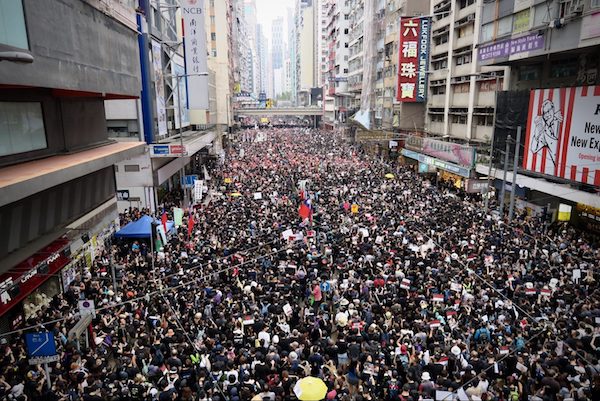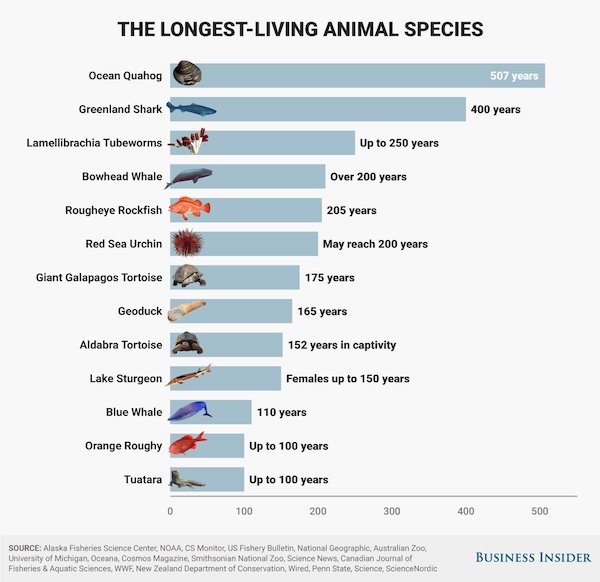
Pablo Picasso The sculptor and his statue 1933

Broken. Completely.
• The Bleak Mood Of Pre-Brexit UK (O.)
The survey by BritainThinks reveals an astonishing lack of faith in the political system among the British people, with less than 6% believing their politicians understand them. Some 75% say that UK politics is not fit for purpose. As the Conservative party focuses on who its new leader should be, and the Brexit impasse continues with no solution in sight, 86% think the UK needs a strong leader more than ever – but only 21% think the next prime minister, whoever it may be, will be up to the job. Some 52% believe the country is heading for a Boris Johnson premiership.
Pollster Deborah Mattinson said she was shocked by the findings. “I have been listening to people in focus groups since the late 1980s and I cannot recall a time when the national mood was more despairing. ‘Broken’, ‘sad’, ‘worried’, ‘angry’– the negatives tumble out, as does the long list of grievances. I’m hearing anxieties voiced in a way that I haven’t heard since the 1990s: a rundown NHS, job insecurity, teacher shortages.” BritainThinks polled more than 2,000 people and hosted several focus groups in London and Leicester to gauge the national mood.
Almost three-quarters of the British public believe the divisions on Brexit between Leavers and Remainers will deepen and get worse within the next year. Two-thirds feel depressed by rising poverty and homelessness. While people say Brexit has made them more politically engaged – 40% are paying more attention since the 2016 referendum, rising to 50% in those aged between 18 and 24 – the polling suggests the bitter political debate over leaving the EU has shattered public trust in the way the nation is governed. Some 83% feel let down by the political establishment and almost three-quarters (73%) believe the country has become an international laughing stock and that British values are in decline.


Ralph Nader says the 737 MAX should never fly again.
• Boeing May Never Recover From 737 Debacle (Auerback)
Many of us are familiar with the acronym “FUBAR.” A recent New York Times article on the Boeing 737 fiasco provides a perfect illustration of the concept. We’re now learning that the company “built deadly assumptions” into its newly designed 737 Max aircraft and, specifically, its Maneuvering Characteristics Augmentation System (MCAS). Even worse, the Times account concludes that the recent air crashes that have resulted in a worldwide grounding of the Boeing Max plane “might have been avoided, if employees and regulators had a better understanding of MCAS” and if the US Federal Aviation Authority (FAA) itself was not operating with outdated data on the software changes (which Boeing failed to provide).
The analysis is excellent as far as it goes. But the most damning fact only briefly hinted at in the article is that the problems were evident as early as 2012, some five years before the newest 737 version was marketed and sold across the globe. “At its core, this was a hardware problem, not a software issue. Even when Boeing was using a relatively “safer” version of the early MCAS software (that was later changed to a more dangerous version), the new 737 still had an engine too large to be accommodated in its traditional spot on the plane, which ultimately distorted “the relationship between the engine’s ‘thrust’ and its center of gravity,” as I’ve written before. The resultant aerodynamic problems could not be solved with a software “solution,” no matter how “safe” the original MCAS version (that was ultimately changed to an even more dangerous version) was purported to be.”
Just don’t expect any blowback from Washington. The whole episode provides yet another sick illustration of how the entire system of governance in the US has degenerated into a fully fledged “predator state.” About the only good thing that might emerge from this whole fiasco is that Boeing will provide future Master of Business Administration students with a textbook example of how not to manage a crisis. Likewise, future historians and political scientists will marvel in incredulity at the magnitude of corruption that enveloped the US during this very dark time in the life of the republic. Assuming, of course, that there still anything left worth studying by that point.
[..] Recall that the genesis of this disaster was a problem of hardware, not just MCAS. The extra lift of the far larger-diameter engines of the 737 Max (placed on a different position on the wing) caused the plane to pitch up whenever it approached stall angles of attack at both high and low speeds. This is a problem that should have become glaringly obvious to the greenest of aerodynamics personnel at Boeing the moment the first wind-tunnel model was tested at angles of attack higher than stall (it may have even been obvious on even earlier fluid-dynamics computer-simulation results).

“.. In order to offset overseas decline, Huawei is aiming to grab up to half of China’s smartphone market in 2019..”
• Huawei Prepares For 40%-60% Fall In International Smartphone Shipments (R.)
Huawei Technologies Co Ltd is preparing for a 40% to 60% decline in international smartphone shipments, Bloomberg reported on Sunday. The Chinese technology company is looking at options that include pulling the latest model of its marquee overseas smartphone, the Honor 20, according to the article, which cited people familiar with the matter. The device will begin selling in parts of Europe, including Britain and France, on June 21, the report said. Executives will be monitoring the launch and may cut off shipments if the sales are poor, it said. Marketing and sales managers at the tech giant are internally expecting a drop in volumes of anywhere between 40 million to 60 million smartphones this year, the report said. In order to offset overseas decline, Huawei is aiming to grab up to half of China’s smartphone market in 2019, Bloomberg said.

Be careful what you wish for. Sanctions made Russia stronger too.
• Huawei Moves To Russia-China Operating System (Escobar)
Google cuts Huawei off Android; so Huawei may migrate to Aurora. Call it mobile Eurasia integration; the evolving Russia-China strategic partnership may be on the verge of spawning its own operating system – and that is not a metaphor. Aurora is a mobile operating system currently developed by Russian Open Mobile Platform, based in Moscow. It is based on the Sailfish operating system, designed by Finnish technology company Jolla, which featured a batch of Russians in the development team. Quite a few top coders at Google and Apple also come from the former USSR – exponents of a brilliant scientific academy tradition.
In 2014, Russian entrepreneur Grigory Berezkin started co-owning Jolla, and from 2016 his Mobile Platform company started developing a Russian version of the operating system. In 2018, Rostelecom, a state company, bought a 75% share in Open Mobile Platform. Ahead of the St Petersburg International Economic Forum last week, Huawei chairman Guo Ping discussed the possibility of adopting Aurora with Russian minister of digital development and communications, Konstantin Noskov. According to Guo, “China is already testing devices with the Aurora pre-installed.” In Moscow, before moving to St Petersburg, Presidents Putin and Xi Jinping discussed multiple possible deals; and these include Huawei-Aurora, as well as where to locate some of Huawei’s production lines in Russia.
Aurora could be regarded as part of Huawei’s fast-evolving Plan B. Huawei is now turbo-charging the development and implementation of its own operating system, HongMeng, a process that started no less than seven years ago. Most of the work on an operating system is writing drivers and APIs (application programming interfaces). Huawei would be able to integrate their code to the Russian system in no time. HongMeng, for its part, is a key project of Huawei 2012 Laboratories, the innovation, research and technological development arm of the Shenzhen colossus. No Google? Who cares? Tencent, Xiaomi, Vivo and Oppo are already testing the HongMeng operating system, as part of a batch of one million devices already distributed.

Mutti is not happy.
• Deutsche Bank To Set Up €50 Billion Bad Bank (R.)
Deutsche Bank is planning to overhaul its trading operations by creating a “bad bank” to hold tens of billions of euros of assets and shrinking or shutting its U.S. equity and trading businesses, the Financial Times reported on Sunday. The bad bank would house or sell assets valued at up to 50 billion euros ($56.06 billion)- after adjusting for risk – and comprise mainly long-dated derivatives, the FT reported, citing four people briefed on the plan. With the creation of the bad bank, Chief Executive Officer Christian Sewing is shifting the German lender away from investment banking and focusing on transaction banking and private wealth management, the newspaper said.
As part of the restructuring, the lender’s equity and rates trading units outside continental Europe will be shrunk or closed entirely, the report said. The bank is planning cuts at its U.S. equities business, including prime brokerage and equity derivatives, to win over shareholders unhappy about its performance, four sources familiar with the matter told Reuters in May. “As we said at the AGM on May 23, Deutsche Bank is working on measures to accelerate its transformation so as to improve its sustainable profitability. We will update all stakeholders if and when required,” Deutsche Bank said in an emailed statement on Sunday in response to the FT report.

Grand theft auto made legal.
• How Wall Street Got Rich Off The Fresh Market Deal (Cohan)
Take the case of the March 2016, $1.36 billion cash buyout of a supermarket chain, Fresh Market, by Apollo Global Management, the firm started by Leon Black nearly 30 years ago that now manages more than $300 billion. In that deal Apollo teamed up with Ray Berry, the company’s founder, and his son, Brett, to buy out the company’s public stockholders. Before the buyout the Berrys owned about 10% of the public Fresh Market. They agreed to roll over that stake into the newly private Fresh Market, giving them about the same ownership in the private company—worth somewhere between $136 million and $930 million, if the alchemy of leveraged buyouts worked out. Apollo would own the remaining 90% of the equity of the private company.
Because the deal was, in effect, a management buyout of the company, Fresh Market set up a special three-member committee of independent directors to evaluate the Apollo proposal, as well as any others that might come in over the transom after the company decided to put itself up for sale shortly after September 1, 2015. As professional referees, the special committee hired JPMorgan Chase as its financial adviser, and Cravath, Swaine & Moore as one of its legal advisers. Their job was to evaluate the various proposals to buy Fresh Market, a collection of 186 stores in 27 states as of March 2016, and to make sure that the one chosen was, in the parlance of Wall Street, “fair” to the public shareholders of the company “from a financial point of view.”
That’s when things got interesting, especially since Apollo was the only final bid the company received. According to a class action shareholder lawsuit that is still wending its way through the Delaware Court of Chancery, Apollo used its long-standing financial ties to JPMorgan Chase and Cravath to co-opt the process for the benefit of itself and the Berrys, allowing them to buy the company on the cheap. In effect, the lawsuit alleges, by teaming up with the Berrys on an exclusive basis, Apollo was able to buy Fresh Market knowing that its competition for the company would be at a severe disadvantage, without being able to count on the Berrys support, and that JPMorgan Chase would likely bless the fairness of the deal.

Japan, Germany, Corbyn…
• Japan Demands More Proof From US That Iran Attacked Tankers (JT)
The Japanese government has been requesting the United States for concrete evidence to back its assertion that Iran is to blame for the attacks on two tankers near the Strait of Hormuz on Thursday, government sources said Sunday. The request came after U.S. Secretary of State Mike Pompeo gave a statement hours after the attacks blaming Iran but without offering proof. The Department of Defense later released a video allegedly showing an Iranian patrol boat removing an unexploded mine attached to the side of the Japanese-operated tanker Kokuka Courageous. But Japanese government officials remain unconvinced, the sources said. “The U.S. explanation has not helped us go beyond speculation,” said one senior government official.
Japan has been seeking more concrete evidence through various channels, including Foreign Minister Taro Kono who is likely to have made the request during a call with his counterpart on Friday, the sources said. Pompeo said in a press conference Thursday that the United States’ assessment was based on their “intelligence, the weapons used, the level of expertise needed to execute the operation, recent similar Iranian attacks on shipping, and the fact that no proxy group operating in the area has the resources and proficiency to act with such a high degree of sophistication.” A source close to Prime Minister Shinzo Abe said, “These are not definite proof that it’s Iran.” “Even if it’s the United States that makes the assertion, we cannot simply say we believe it,” he said.

AI at its best.
• The S-400 Is a Formidable Threat to US Arms Industry (Pieraccini)
The US finds itself faced with a situation it has not found itself in over the last 50 years, namely, an environment where it does not expect to automatically enjoy air superiority. Whatever semblance of an air defense that may have hitherto been able to pose any conceivable threat to Uncle Sam’s war machine was rudely dismissed by a wave of cruise missiles. To give two prime examples that occurred in Syria in 2018, latest-generation missiles were intercepted and shot down by decades-old Russian and Syrian systems. While the S-400 system has never been employed in Syria, it is noteworthy that the Serbian S-125 systems succeeded in identifying and shooting down an American F-117 stealth aircraft during the war in the Balkans.
There is a more secret aspect of the S-400 that is little disclosed, either within Russia itself or without. It concerns the S-400’s ability to collect data through its radar systems. It is worth noting Department of Defense spokesman Eric Pahon’s alarm over Turkey’s planned purchase of the S-400: “We have been clear that purchasing the S-400 would create an unacceptable risk because its radar system could provide the Russian military sensitive information on the F-35. Those concerns cannot be mitigated. The S-400 is a system built in Russia to try to shoot down aircraft like the F-35, and it is inconceivable to imagine.
Certainly, in the event of an armed conflict, the S-400’s ability to shoot down fifth-generation aircraft is a huge concern for the United States and her allies who have invested so heavily in such aircraft. Similarly, a NATO country preferring Russian to American systems is cause for alarm. This is leaving aside the fact that the S-400 is spreading around the world, from China to Belarus, with dozens of countries waiting in line for the ability to seal their skies from the benevolent bombs of freedom. It is an excellent stick with which to keep a prowling Washington at bay.
[..] The ability of the S-400 to collect data on both the F-35 and F-22 – the crown jewels of the US military-industrial complex – is a cause for sleepless nights for US military planners. What in particular causes them nightmares is that, for the S-400 to function in Turkey, it will have to be integrated into Turkey’s current “identification friend or foe” (IFF) systems, which in turn are part of NATO’s military tactical data-link network, known as Link 16.

2 million. Beijing has said it stands behind her.
• While Lam Relents, Hong Kong Calls Massively For Her Ouster (AT)
Hong Kong’s embattled Chief Executive Carrie Lam issued a public apology Sunday evening (June 16) as hundreds of thousands of protestors dressed in black clogged the city’s streets in another massive protest demanding her resignation and the scrapping of a contentious bill that would allow for the extradition of suspects to mainland China. A day after Lam announced a surprise decision to indefinitely postpone the bill in a press conference on Saturday, the city’s leader vowed to “sincerely and humbly accept all criticism and to improve and serve the public” in a statement released at 8:30 pm as chanting crowds stood outside the gates of her office calling for her to step down.
“Carrie Lam’s press conference yesterday just made Hong Kong people angrier. We don’t think she will step down, but we must force her out,” said 27-year-old Chiew minutes before demonstrators began marching from Victoria Park in the scorching afternoon heat with the aim of forcing the government to rescind, rather than postpone, the controversial bill. Gripped by a surge of mass dissent, the Asian financial hub has been thrust into political crisis amid the largest political demonstrations and some of the worst scenes of violence since Hong Kong’s return to Chinese rule in 1997. Organizers from the Civil Human Rights Front said almost two million people took part in Sunday’s march.

Protest organizers said almost two million people took part in a mammoth June 16 protest march. Photo: Nile Bowie

Yeah, that’s going to happen.
• Chinese Activists Seek UN Investigation Into Tiananmen Crackdown (R.)
More than 20 Chinese activists who took part in the Tiananmen Square pro-democracy movement called on Monday on the United Nations’ top human rights body to investigate Beijing’s deadly crackdown 30 years ago. Wang Dan and 21 others, backed by the group Chinese Human Rights Defenders, said they had submitted the complaint to the U.N. Human Rights Council, a Geneva forum which opens a three-week session on June 24. “We request the HRC investigate the gross violations of human rights and fundamental freedoms committed by the Chinese government during its military assault on peaceful protests,” they said in statement.
They also sought action over “the consistent pattern of human rights violations in persecuting Chinese citizens during the past three decades who broke the silence” about the events of June 3-4, 1989. The anniversary remains taboo in China. Beijing has not held a public inquiry nor permitted an independent investigation, the statement said. Beijing enjoys strong support among developing countries at the Human Rights Council, a 47-member state forum that has never adopted a resolution on China since being set up in 2006.












Home › Forums › Debt Rattle June 17 2019